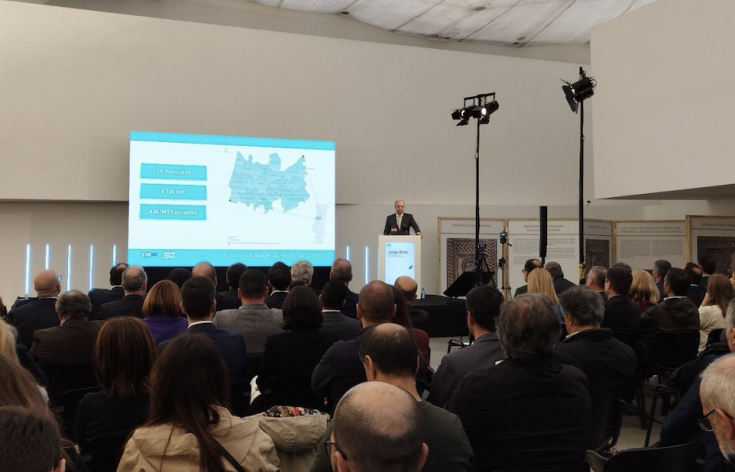Stakeholders shaping Mobility in Coimbra

On April 14, 2025, the Pavilhão do Centro de Portugal in Coimbra became the stage for a key Regional Stakeholder Group Meeting under the EMBRACER Project. Organised by the project’s Lead Partner and CIM – Coimbra Region (PP02), the event brought together a mix of local and regional decision-makers, transport authorities, and mobility experts. This gathering brought together 64 participants, a diverse network of regional key stakeholders, policy-makers, and mobility experts to collaboratively envision the future of public transport across the Coimbra Region.
With the overarching theme of delivering citizen-shaped mobility solutions, the event marked a key milestone in launching improved public transport routes and introducing the new regional operator, Busway Coimbra S.A. Attendees included representatives from the National Mobility and Transport Authority, CIM – Região de Aveiro (CIRA), municipal leaders from Coimbra and for instance, the remote areas such as Arganil, Penacova, Penela, Tábua, Pampilhosa da Serra, public transport operators such as BUS Way and Transdev, and top transport consultants like TRENMO and OPT.
High-level representatives from the Municipality of Coimbra opened the meeting by setting a future-oriented tone and stressing the value of collaboration among stakeholders to enhance regional mobility and accessibility. CIM – Coimbra Region presented a detailed overview of the newly established Road Passenger Transport Concession, highlighting how it is tailored to better align services with the real needs of citizens, and the new public transport operator, Busway Coimbra S.A., introduced its operational model, committing to a service that prioritizes efficiency, inclusivity, and environmental sustainability. Emílio Torrão, President of CIM – Coimbra Region also shared the broader strategic vision for mobility in the territory, emphasizing its coherence with the EMBRACER Project’s objectives of fostering adaptable and citizen-focused transport systems. The National Mobility and Transport Authority offered valuable perspectives on the current governance framework in Portugal, advocating for integrated policies that enable innovation while promoting equitable and sustainable access across all regions.

A roundtable discussion brought participants into a rich dialogue on bridging regional gaps, especially in remote and low-density areas, by emphasizing sustainable transport modes and integrated land use planning.
There was broad alignment among attendees by the end of the meeting: collaborative governance is essential to tackling today’s mobility challenges. Stakeholders agreed that despite the heterogeneity of the Coimbra Region, characterized by both urban hubs and rural regions of interest, shared commitment and adaptive planning are crucial to shaping a more inclusive and sustainable mobility landscape.
“This is not just about buses or timetables - it’s about how we connect people to opportunities, services, and each other,” said one participant. “The EMBRACER Project helps us do that, together.”
